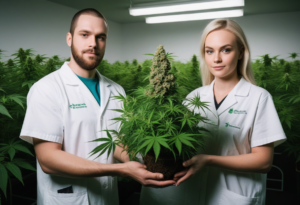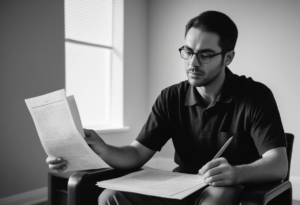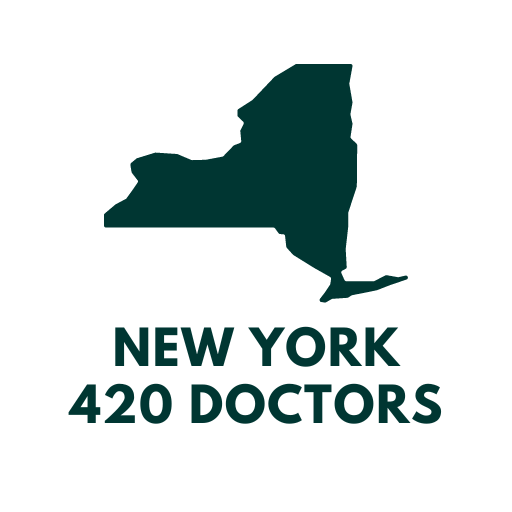The use of medical marijuana in New York has provided new avenues for treating a wide range of medical conditions, including chronic pain, epilepsy, and other severe ailments. While most patients who apply for a Medical Marijuana Card New York are adults, there is a pathway for minors to obtain medical marijuana as well. However, for minors, the process is more complex and involves additional regulations to ensure safety. In this article, we’ll explore how minors can qualify for a NY Medical Marijuana Card, the role of caregivers, what medical conditions apply, and the legal protections in place for minor patients and their caregivers.
Qualifying Conditions for Minors to Obtain a Medical Marijuana Card
Similar to adults, minors must meet specific medical criteria to be eligible for a New York Medical Marijuana Card. The first step is to have a qualifying medical condition. The conditions listed by the New York State Department of Health include but are not limited to:
•Chronic Pain: Persistent pain lasting more than three months that cannot be effectively managed with standard treatments.
•Epilepsy: Seizure disorders that can be controlled or alleviated by the use of medical cannabis.
•Cancer: Medical marijuana is often used to help cancer patients manage pain, nausea, and loss of appetite, especially during chemotherapy.
•Multiple Sclerosis: This condition causes severe muscle spasms and pain, and medical cannabis has shown to be an effective treatment for managing these symptoms.
•HIV/AIDS: Patients with HIV or AIDS can use medical marijuana to treat symptoms like weight loss, nausea, and pain.
Other conditions such as Crohn’s disease, PTSD, spinal cord injuries, and Parkinson’s disease are also included in the list of qualifying conditions for medical marijuana use in New York. For minors with these conditions, obtaining a medical marijuana card is possible, but they must be under the supervision of a registered caregiver, typically a parent or legal guardian.
Role of Caregivers in the Medical Marijuana Process for Minors

Since minors cannot legally purchase or possess medical marijuana on their own, the role of the caregiver is critical in the process. A caregiver is responsible for managing all aspects of the minor’s medical marijuana treatment, from applying for the Medical Marijuana Card NY to administering the medication and ensuring the minor complies with state laws.
The caregiver must meet the following criteria:
1. Be over 21 years of age: The caregiver, typically a parent or legal guardian, must be of legal age to handle controlled substances.
2. Be a New York Resident: The caregiver must provide proof of residency in New York, such as a state-issued ID, driver’s license, or utility bill.
3. Submit a Caregiver Application: Along with the minor’s application, the caregiver must also register with the state as the minor’s designated caregiver. The application is submitted through the New York State Department of Health’s Medical Marijuana Program portal, and the caregiver will receive their own identification card, allowing them to purchase medical marijuana on behalf of the minor.
Caregivers play a pivotal role in ensuring that the minor follows the doctor’s recommendations for dosage and that the product is used safely. They also have the responsibility to communicate with the New York Medical Marijuana Doctor if the minor’s condition changes or if adjustments to the treatment are necessary.
Application Process for Minors

Once a minor has been diagnosed with a qualifying condition, the process to obtain a Medical Marijuana Card New York begins with the involvement of a New York Medical Marijuana Doctor. The physician must be registered with the state’s medical marijuana program and will evaluate the minor’s condition to determine whether medical cannabis is a viable treatment option.
1. Doctor’s Certification: The New York Medical Marijuana Doctor must issue a certification that confirms the minor’s medical condition and the necessity of cannabis as a treatment. The certification is submitted as part of the application to the Department of Health.
2. Caregiver Registration: After the minor receives the doctor’s certification, the caregiver must complete the registration process on the state’s website. Both the minor and the caregiver must submit identification documents to verify their identities.
3. Approval and Issuance of the Card: Once the application is reviewed and approved by the New York Department of Health, the caregiver will receive a temporary card via email. The physical card is mailed to the caregiver within 7 to 10 business days, at which point the caregiver can legally purchase medical marijuana from a licensed dispensary for the minor.
Restrictions on Medical Marijuana for Minors

There are specific restrictions in place for minors when it comes to the forms of medical marijuana they can use. These regulations are intended to ensure the safety of young patients and limit their exposure to harmful substances. Here’s what’s allowed and what’s restricted:
•No Smoking or Vaping: Minors are prohibited from using medical marijuana in smokable or vape form. This ensures that they do not inhale any harmful carcinogens or toxins that can come from smoking.
•Limited THC Content: Products for minors must have controlled THC levels to avoid psychoactive effects, which can be harmful to developing brains. Many products are formulated with higher concentrations of CBD (Cannabidiol), a non-psychoactive compound known for its medicinal properties.
•Approved Products: Minors can use approved forms of medical marijuana such as oils, tinctures, edibles, and topicals. These forms allow for precise dosing and reduce the risks associated with more direct forms of cannabis consumption.
Legal Protections for Minor Patients and Caregivers

New York’s medical marijuana laws offer legal protections to minor patients and their caregivers. The NY Medical Marijuana Card serves as legal proof that the minor is authorized to use cannabis for medical purposes under the supervision of their caregiver. This provides immunity from prosecution for both the minor and the caregiver, as long as they comply with the state’s regulations.
The state’s program is also designed to ensure that medical marijuana is used strictly for medical purposes. Any misuse or diversion of the product to non-medical use is illegal and could result in the revocation of the medical marijuana card and potential legal penalties. Both the minor and the caregiver are required to follow the state’s guidelines to maintain legal protection.
Renewal of Medical Marijuana Certification
Medical marijuana certifications for minors, like those for adults, must be renewed annually. The caregiver is responsible for ensuring that the certification remains valid and that the minor continues to meet the medical criteria. The renewal process typically involves:
•Doctor’s Re-evaluation: The minor must be re-evaluated by the New York Medical Marijuana Doctor to ensure that medical marijuana is still an appropriate treatment. The doctor will assess whether the treatment has been effective and whether any adjustments to the dosage or product type are necessary.
•Submission of Updated Information: Any changes in the minor’s health or caregiver’s details must be submitted during the renewal process. If the caregiver changes (for example, if a different family member assumes the role), the new caregiver must also complete the application process.
Conclusion
Minors in New York can obtain a Medical Marijuana Card with the assistance of a caregiver and a certified medical marijuana doctor. The state has established a comprehensive process to ensure that medical marijuana is used safely and responsibly for minors, with stringent requirements regarding dosage, product types, and caregiver oversight. Although the process is more involved than it is for adult patients, it allows minors with severe medical conditions to access the therapeutic benefits of cannabis under the guidance of healthcare professionals. By following the state’s regulations, minors and their caregivers can gain legal protection and improve the quality of life for young patients who need alternative treatments for their conditions.

